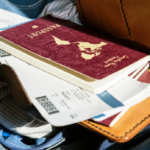The refusal of a Schengen visa can be a disheartening experience, especially when you have travel plans and commitments at stake. But the good news is that a Schengen visa refusal is not the end of the road. You have the right to appeal the decision, and with a systematic approach, you can improve your chances of success.
In this guide, we will explore how to appeal a Schengen visa refusal, breaking down the process step-by-step while ensuring you understand your rights and obligations.
What Does a Schengen Visa Refusal Mean?
A refusal means that the authorities have determined your application does not meet the required criteria. The refusal letter will provide specific reasons, such as:
- Incomplete documentation.
- Lack of financial means.
- Unclear purpose of travel.
- Questionable intentions for return to the home country.
Understanding the reason for refusal is the first step to crafting a strong appeal.
Steps to Appeal a Schengen Visa Refusal
If your visa application has been denied, follow these steps to ensure a well-organized appeal:
1. Review the Refusal Letter Carefully
Your refusal letter is a crucial document. It contains:
- The reasons for refusal.
- Instructions on how to appeal.
- The deadline for filing an appeal (often between 15 to 30 days).
- The relevant authority to address your appeal.
2. Understand the Grounds for Refusal
Common refusal reasons include:
- Missing or forged documents.
- Insufficient proof of financial stability.
- Lack of a clear itinerary.
- Concerns about your return to your home country.
Analyzing these reasons will help you address them specifically in your appeal.
3. Draft Your Appeal Letter
An appeal letter is your chance to provide a clear and logical explanation. It should include:
- Personal Details:
- Full name.
- Passport number.
- Contact information.
- Case Reference:
- The application number from the refusal letter.
- Acknowledgment of Refusal:
- Mention the reasons cited in the refusal.
- Your Explanation:
- Clarify how you meet the visa requirements and provide supporting documents.
- Respectful Tone:
- Avoid criticism of the decision or aggressive language.
4. Gather Supporting Documents
Include evidence that addresses the reasons for refusal, such as:
- Bank statements or proof of financial means.
- A more detailed travel itinerary.
- An employment or study confirmation letter.
- Proof of ties to your home country (property documents, family ties).
5. Submit Your Appeal
Ensure that:
- Your appeal is addressed to the correct authority.
- You adhere to the deadlines.
- The documents are submitted in the required format.
6. Follow Up on Your Appeal
After submission, the review process can take several weeks. Stay in touch with the consulate or visa application center for updates.
Tips for a Successful Appeal
Here are some practical tips to improve your chances:
- Stay Calm and Professional: The tone of your appeal matters.
- Be Honest: Avoid exaggeration or providing false information.
- Focus on the Details: Address all issues raised in the refusal letter comprehensively.
- Seek Professional Help: If you’re unsure about the process, consult an immigration lawyer or a visa consultant.
FAQs: How to Appeal a Schengen Visa Refusal?
1. Can I reapply instead of appealing?
Yes, you can choose to reapply instead of appealing. However, reapplying without addressing the initial refusal reasons may result in another denial.
2. What happens if my appeal is rejected?
If your appeal is unsuccessful, you can either:
- Reapply with a stronger application.
- Pursue further legal action in the country’s administrative court.
3. Can I appeal without a lawyer?
Yes, but professional guidance can help improve your chances, especially for complex cases.
Why Was My Schengen Visa Refused?
It’s essential to understand the underlying reasons for refusal:
- Financial Instability: If your bank statements don’t reflect sufficient funds.
- Travel Insurance Issues: Inadequate coverage.
- Unclear Travel Purpose: Lack of detailed itinerary or accommodation bookings.
- Missing Documents: Not providing all required paperwork.
Conclusion
A Schengen visa refusal can be a temporary hurdle if approached correctly. By understanding how to appeal a Schengen visa refusal and addressing the reasons with supporting evidence, you stand a strong chance of overturning the decision.
Remember, persistence and preparation are key. Whether you choose to appeal or reapply, ensure your application reflects accuracy, completeness, and clarity
Related Post:- A Complete Guide to the Chinese Visa Application Service Center













